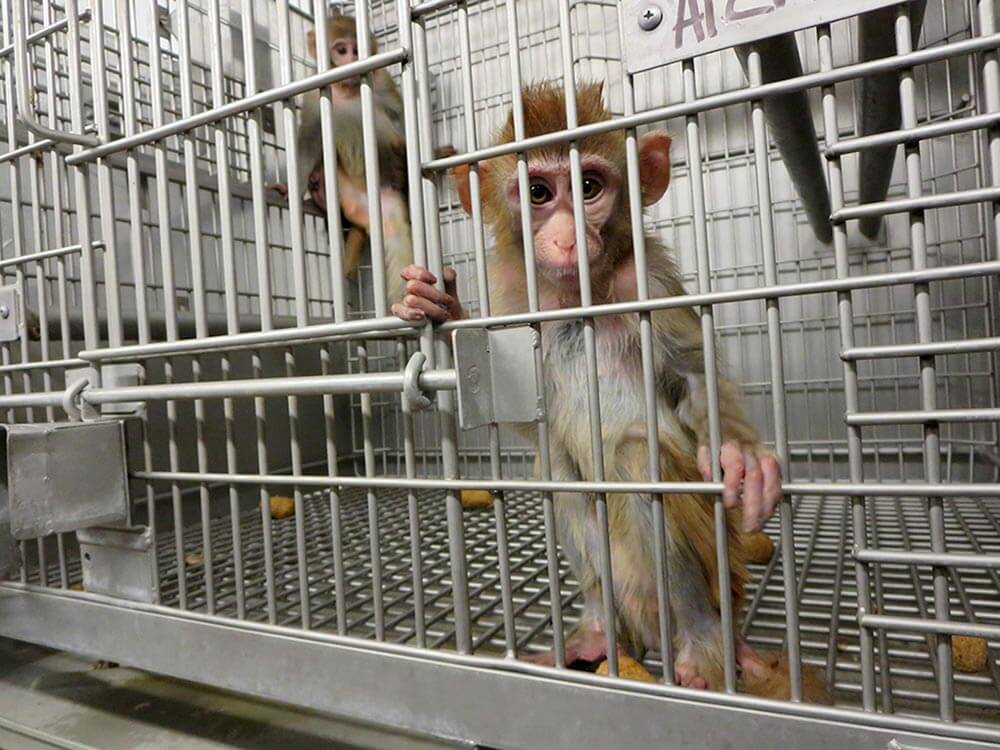
Every year in United States only, over 100,000 primates are kept in laboratories. They are put in extremely stressful condition in closed cages and reused for numerous different experiments until they lose their purpose and be put down or pass of side effects from the experiments.
The purpose of this blog is to inform readers about the horrific realities of primates being used as lab materials and call for a legislative change regarding the topic.

Why are primates used for experiments?
Primates share very similar physical traits with humans, having approximately 98% DNA match.
They are considered to be the most ideal subject for medical and non-medical experiments due to such similarities.
What are some experiments that are done on them?
Experiments regarding studies of infectious disease, like HIV and hepatitis, neurological studies, behavior and cognition, reproduction, genetics and more.
Where do the experimentally used primates come from?
They are purposefully bred, or taken from the wild.
Why is this controversial?
Many primates are critically endangered around the world. In addition, primates have similar brain functions with humans, which means they can feel pain similarly with humans.
What is the legal status of primates in different countries?
United States is one of the only country that allows medical experiments to be done on Chimpanzees.
In 2008, Spain gave the right to life, to liberty and to not be tortured(experimented) to Great Apes.
Many countries including Sweden, New Zealand, Netherlands and United Kingdom enacted ban on primate experiments excluding non-invasive behavior ones.

What can we do?
1. Donate for PETA, People for the Ethical Treatment of Animals
PETA is a non-profit organization dedicated to stop inhumane treatment of animals all around the world. They use the financial help to lobby, advertise and inform about the cruelties
done on animals.
Check the following link for additional information
https://support.peta.org/page/1828/donate/1?en_txn7=Navigation::top%20donate%20now%20button&supporter.appealCode=IXXXWBXXXXG
2. Be informative
Use social media to help inform the realities of animals in laboratories to others. Subscribe to informative articles to stay informed.
3.Take action
Contact nearby animal shelter or hospital to see what you can do to make a difference through volunteering. Sign on-going petitions.
Change does not require a grand move, but small actions of individuals. With everyone's care, we might be able to stop animal testing in the future.
No comments:
Post a Comment